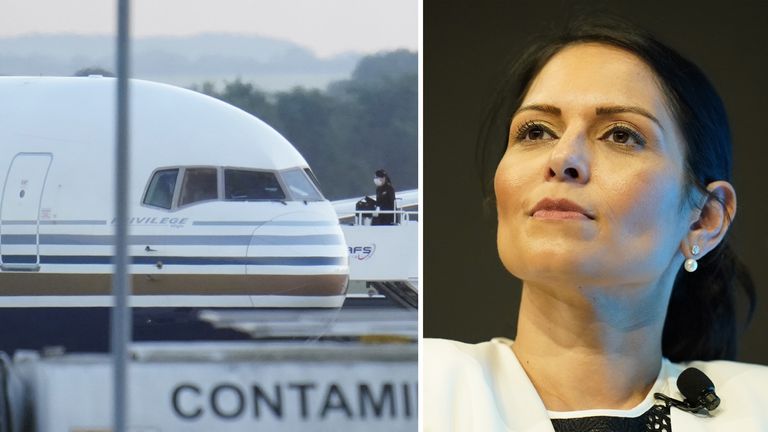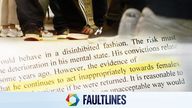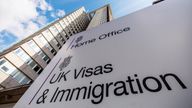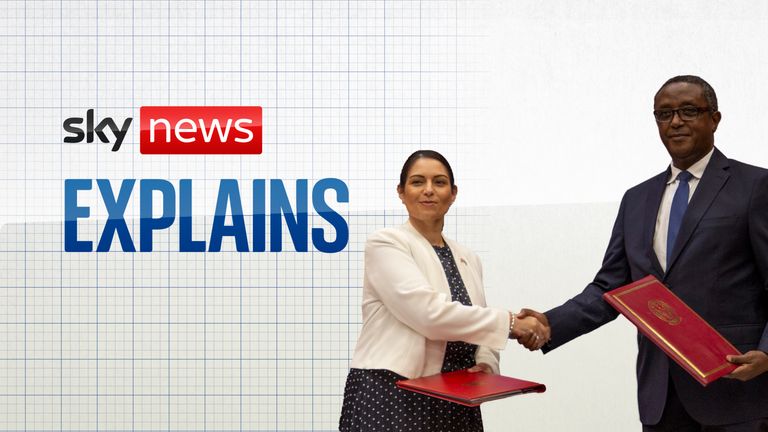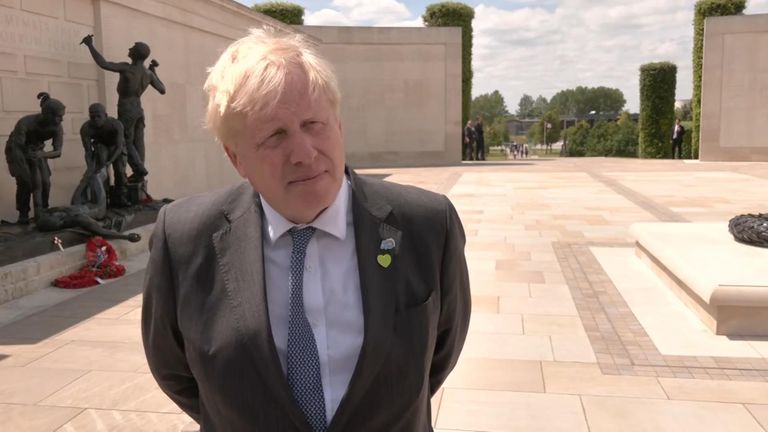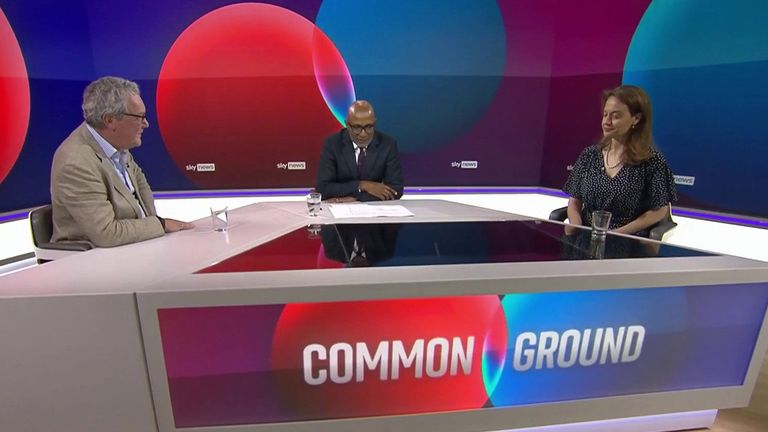Rwanda flight cancelled: Priti Patel criticises European Court of Human Rights as deportations challenged
Priti Patel, the home secretary, has said the government "will not be deterred from doing the right thing and delivering our plans to control our nation's borders" after the first deportation flight to Rwanda was stopped at the 11th hour on Tuesday.
Wednesday 15 June 2022 07:27, UK
Priti Patel has criticised the European Court of Human Rights after its interventions stopped the first deportation flight due to take asylum seekers to Rwanda.
This story is out of date - go here to read about the government's plan to challenge the decision by the European Court of Human Rights
The plane was waiting on a Ministry of Defence runway on Tuesday night when the European Court of Human Rights issued last-minute injunctions to stop the deportation of the migrants onboard.
The home secretary said: "It is very surprising that the European Court of Human Rights has intervened despite repeated earlier success in our domestic courts."
English judges in the Court of Appeal had ruled on Monday that the flight could go ahead after a legal challenge by campaigners, who say the government's plan to send some migrants to the east African country is inhumane.
Ministers have defended the policy, saying it is needed to stop illegal people smuggling in small boats across the Channel.
Ms Patel said the government "will not be deterred from doing the right thing and delivering our plans to control our nation's borders" after the flight was cancelled.
A source said that the plane, which was waiting to go at Boscombe Down in Wiltshire, would not be departing due to "last-minute interventions from the European Court of Human Rights".
Ms Patel warned that "many of those removed from the flight will be placed on the next", adding she was "disappointed" that the legal challenge meant it could not depart.
"These repeated legal barriers are similar to those we experience with other removals flights and many of those removed from this flight will be placed on the next.
"We will not be deterred from doing the right thing and delivering our plans to control our nation's borders. Our legal team are reviewing every decision made on this flight and preparation for the next flight begins now."
Seven people had been expected to board the flight before the successful interventions were made.
Challenges by four asylum seekers were earlier rejected in the English courts.
A fifth man lost a bid to bring a challenge at the Supreme Court after a panel of three justices refused him permission to challenge the Court of Appeal's ruling that the flight could go ahead.
Giving brief reasons for the decision, Lord Reed, the court's president, said there had been an "assurance" that if the policy is found to be unlawful, steps would be taken to bring back any migrants.
The High Court is due to hold a judicial review in July to decide on the legality of the policy.
Rwanda policy condemned as 'immoral'
The plan to send some asylum seekers to Rwanda has been condemned as "immoral" by the Church of England's senior bishops.
Boris Johnson has said its aim is "to support safe and legal routes for people to come to the UK and to oppose the illegal and dangerous routes".
The prime minister told broadcasters on Tuesday that the policy "may take a while to get working properly, but that doesn't mean we're not going to keep going".
Asked if it would be necessary to pull out of the European Convention of Human Rights to restrict legal challenges, Mr Johnson said: "Will it be necessary to change some laws to help us as we go along? It may very well be and all these options are under constant review."
Protesters had earlier tried to stop the first deportation flight, locking themselves together with metal pipes and blockading exits of the Colnbrook Immigration Removal Centre at Heathrow, where the migrants were believed to be held.
'Inhumane policy'
Enver Solomon, chief executive of the Refugee Council, said the cancellation proved the "inhumanity" of the policy.
"The fact that the final flight could not take off is indicative of the inhumanity of the plan and the government's complete refusal to see the face behind the case," he said.
"Those threatened with removal are people who have escaped war, persecution, torture, and violence - many of whom have only been prevented from flying due to individual legal interventions declaring it a clear breach of their human rights to do so."
Mr Solomon continued: "The government must immediately rethink by having a grown-up conversation with France and the EU about sharing responsibility and look to operating an orderly, humane, and fair asylum system."
Mark Serwotka, general secretary of the Public and Commercial Services Union, which brought one of the legal challenges, said: "It's time for the government to stop this inhumane policy which is the basest of gesture politics and start to engage seriously with sorting out the asylum system so those who come to our country seeking refuge are treated fairly and according to the law."
Sadiq Khan, the mayor of London, tweeted: "Sending people fleeing violence to a country thousands of miles away was already cruel and callous. It's now potentially unlawful too."
Government urged to 'immediately rethink' deportation plans
The four potential deportees who lost High Court bids earlier to avoid being put on the plane were:
• An Iraqi Kurd who had suffered PTSD in Turkey while travelling to the UK and had brought a claim asking not to be removed due to his mental health and his relationship with his sister, who lives in the UK
• A Vietnamese man who claimed to have received death threats from loan sharks in Vietnam was also denied after the judge rejected an argument that he was denied translation services
• A man who travelled to the UK from Iran with his 21-year-old son and had asked the court to prevent his removal due to his mental health and a right to a family life
• An application by a Kurdish man who was also refused permission to appeal.
A failed High Court and Court of Appeal legal challenge brought by human rights groups including Care4Calais put the cost of the deportation at £500,000.
The government has rejected this figure, but it is believed the cost of the flight would have been hundreds of thousands of pounds.
Downing Street said the current approach costs the UK taxpayer £1.5bn every year already, with almost £5m a day spent accommodating asylum seekers in hotels.
So far this year, more than 10,000 people have crossed the Channel in small boats.
More than 28,000 people made the dangerous journey last year, more than three times the figure in 2020.
More than half were either Iranian or Iraqi, with people from Eritrea and Syria also making crossings, according to the Home Office.

